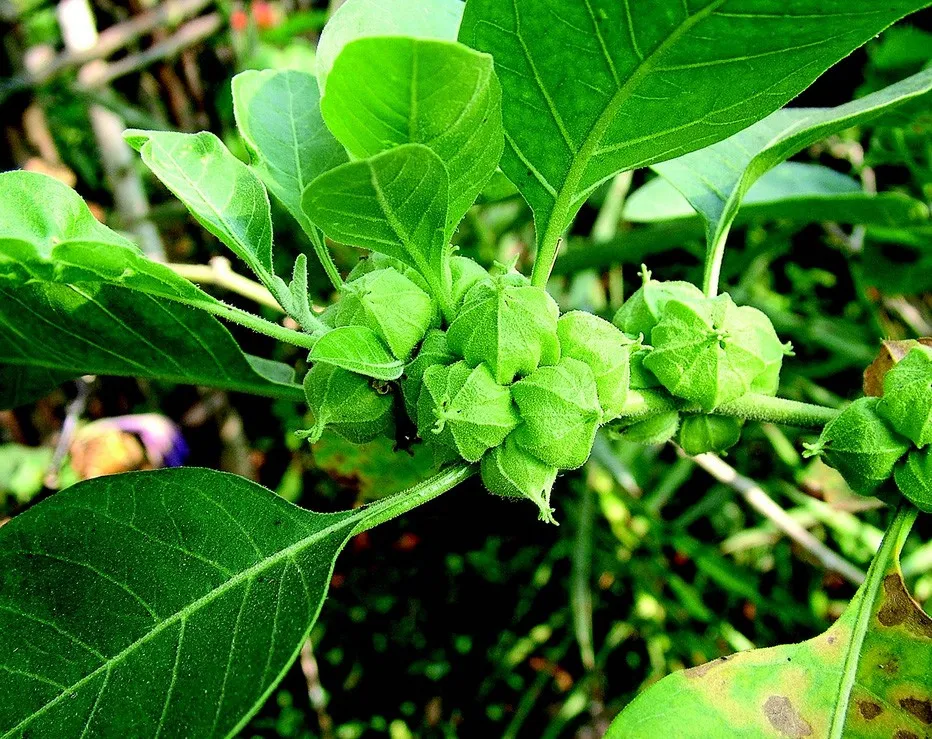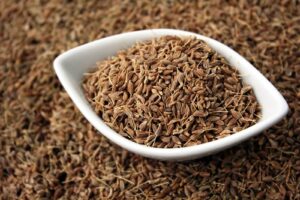Ashwagandha, a name that resonates with ancient wisdom, has graced the annals of Ayurvedic medicine for over 3,000 years. Its Sanskrit name, aptly translating to “smell of horse,” alludes to its invigorating properties. This revered herb, botanically known as Withania somnifera, belongs to the nightshade family and is native to India and North Africa.

Ashwagandha’s roots in traditional medicine are deeply intertwined with Ayurvedic practices. Its earliest documented use dates back to the Charaka Samhita, an ancient Ayurvedic text from around 1000 BCE. The text extols ashwagandha’s ability to promote vitality, strength, and overall well-being.
Over centuries, ashwagandha’s therapeutic applications have expanded, encompassing a wide range of ailments. It has been traditionally employed to combat stress, anxiety, fatigue, and cognitive decline. Ashwagandha’s anti-inflammatory properties have also been utilized to address arthritis and rheumatism.
The herb’s enduring presence in Ayurvedic medicine is a testament to its perceived efficacy and safety. Modern scientific research continues to explore ashwagandha’s potential benefits, further solidifying its position as a time-honored medicinal herb.
Benefits Of Ashwagandha
Renowned in Ayurvedic medicine, ashwagandha has several potential health advantages and is called a “adaptogen.” With its broad spectrum of advantages for both mental and physical health, it is a flexible supplement to any wellness programme.

Stress Reduction and Mood Improvement:
The main reason Ashwagandha is famous is because of its capacity to reduce tension and anxiety. It does this by controlling the levels of cortisol, the stress hormone that triggers the body’s “fight or flight” reaction. Ashwagandha alleviates cortisol spikes and encourages relaxation and overall wellbeing.
Improving Intelligence:
Beyond just relieving stress, Ashwagandha also improves cognitive function. It may enhance focus, memory, and brain function overall, according to studies. This makes Ashwagandha a potentially helpful supplement for people looking to improve their brain function or who are experiencing age-related cognitive decline.
Physical Capacity and Performance:
The adaptogenic qualities of Ashwagandha also improve endurance and athletic performance. A beneficial supplement for athletes and regular exercisers, it has been demonstrated to boost muscle mass and strength.
Its anti-inflammatory qualities
Because of its anti-inflammatory qualities, Ashwagandha may help reduce the symptoms of arthritis and other inflammatory diseases. Its capacity to lower the synthesis of pro-inflammatory cytokines—signaling molecules that exacerbate inflammation—explains this advantage.
These advantages demonstrate Ashwagandha’s potential as a comprehensive wellness supplement, which is backed by both conventional wisdom and recent scientific study.
How to Use Ashwagandha
It’s not too difficult to include the herb in your daily routine because it comes in a variety of forms that are both flexible and simple to utilise.
Ashwagandha capsules:
These offer a precise and easy way to take a recommended dosage. Usually taken with or without meals, they are taken once or twice a day.
Powder:
You can add Ashwagandha powder to milk, juices, smoothies, and other drinks because of its adaptability. The suggested dosage varies according on the powder’s concentration and each person’s demands.
Liquid Extracts:
You can take Ashwagandha liquid extracts alone or mix them with drinks for quick absorption. The concentration of the extract determines the dosage.
Seeking Advice from a Medical Expert:
Even though Ashwagandha is generally thought to be safe, it is still a good idea to speak with a doctor before using it. They can offer you tailored advice on dosage, any drug interactions, and any safety measures particular to your health situation.
Beginning with a Low Amount:
To monitor your body’s reaction and reduce the possibility of any negative effects, start with a low dosage and raise it gradually over time.
Keeping an eye on your response
Observe how Ashwagandha affects your body and record any favourable or unfavourable outcomes. Stop using the product and speak with your healthcare professional if you feel any discomfort.
How to obtain Ashwagandha
Since ashwagandha is widely available in a variety of retail places, obtaining it is rather simple. When selecting your provider, it’s imperative to put quality and safety first.
Reputable stores for health foods:
There are many different brands of ashwagandha supplements available in health food stores. To guarantee product quality, look for brands that place an emphasis on purity, organic farming, and independent testing.
Drugstores:
Another trustworthy place to get Ashwagandha supplements is a pharmacy, especially if it’s a major chain that carries a variety of herbal medicines. See the chemist for advice on reliable brands and suggested dosages.
Reputable Online Stores:
Online stores have a huge assortment of Ashwagandha supplements, frequently at affordable costs. Nonetheless, selecting reliable platforms that value authenticity and high-quality products is crucial. Prior to making a purchase, read customer reviews and look up the brand’s reputation.
Consulting an Expert:
For advice on reliable brands and suppliers of Ashwagandha, speak with a medical practitioner or a licensed herbalist. Based on their understanding of the quality and effectiveness of the herb and their expertise, they can offer insights.
Placing Value Above Price:
Prioritise quality over cost even though money is an issue. To ensure the integrity and effectiveness of the herb, choose Ashwagandha pills from companies that follow stringent quality control procedures.
Dosage
The right amount of Ashwagandha to take depends on a number of factors, including the user’s demands, health, and the type of Ashwagandha being taken.
General Suggestions:
Generally speaking, Ashwagandha dosage recommendations range from 250 to 600 mg daily. Depending on each person’s tolerance and the intended outcome, this can be split into two or three doses spread out throughout the day. The suggested dosage of Ashwagandha can change based on personal needs and the desired health advantages. Diverse dose ranges have been proposed by other research. While medical experts note that individuals have frequently taken up to 1000 mg of Ashwagandha daily for up to 12 weeks, others recommend a dosage of 250–500 mg per day for at least one month. According to some experts, studies have employed daily dosages of a root extract ranging from 120-5000 mg, with 600 mg being the most popular dosing regimen. According to studies, the most common dosage utilised was 300 mg twice daily, or 600 mg overall, according to some herb companies , a dosage range of 250 mg to 5 g per day, depending on the individual health benefit wanted.
Increase Gradually from a Low Start:
To monitor your body’s reaction and reduce the possibility of any negative effects, it is best to begin with a smaller dosage and raise it gradually over time.
Taking Personal Needs Into Account:
The dosage may change based on the particular medical issue being treated. Lower dosages might be adequate for improving general wellness or cognitive function, but higher dosages might be advised for managing stress or anxiety.
Seeking Advice from a Healthcare Professional:
Seeking advice from a healthcare professional is essential for customized dosage recommendations. They can evaluate your health status, medications, and possible interactions to ascertain the best dosage for your requirements.
Complying with Product Instructions:
Read the dosage instructions on the label of the Ashwagandha product carefully. Reputable brands will give precise dosage instructions based on the amount of the herb in their formulation.
Precautions
Even while ashwagandha is usually thought to be safe for most people, there are a few things to keep in mind to make sure you consume it responsibly and safely.
During pregnancy and nursing:
Because there is not enough information available about the safety of ashwagandha’s effects on foetal development and infant health, women who are pregnant or nursing should avoid taking it.
Immune System Disorders:
Ashwagandha should be used with caution by those who have autoimmune illnesses, such as lupus or rheumatoid arthritis, since it may stimulate the immune system and worsen the condition.
Thyroid Disorders:
Before using ashwagandha, people with thyroid conditions, especially those with hyperthyroidism, should speak with their doctors because the herb may alter thyroid hormone levels.
Pharmacological Interactions:
Blood thinners, thyroid medications, and sedatives are just a few of the drugs that ashwagandha may interact with. Tell your doctor about any ashwagandha use so they can evaluate any possible interactions.
Watching for Adverse Reactions:
Ashwagandha is generally well tolerated, yet in certain people, it can have moderate adverse effects like headaches, sleepiness, or upset stomach. If any side effects continue, stop using the product and see a doctor.
Personalised Method:
Ashwagandha use should be decided for each person individually, taking into account prescriptions, possible interactions, and general health. It is always advisable to speak with a healthcare provider before adding ashwagandha to your wellness routine.
Conclusion
To sum up, Ashwagandha has a long history of use in Ayurvedic medicine and is a traditional medicinal herb. Numerous health benefits are associated with it, such as decreased stress, better sleep, greater male fertility, improved memory, enhanced athletic performance, decreased inflammation, and better blood sugar regulation. It’s critical to work with a healthcare professional to identify the right dosage for each person’s needs when using Ashwagandha. Even though Ashwagandha is typically safe, pregnant women should exercise caution when consuming excessive amounts or utilising it. Select Ashwagandha supplements from reputable companies that have undergone testing to ensure the highest level of efficacy and purity.
Reference : http://www.wikipeddia.com
Disclaimer : It is advisable to use Ashwagandha under a medical expert’s supervision.







